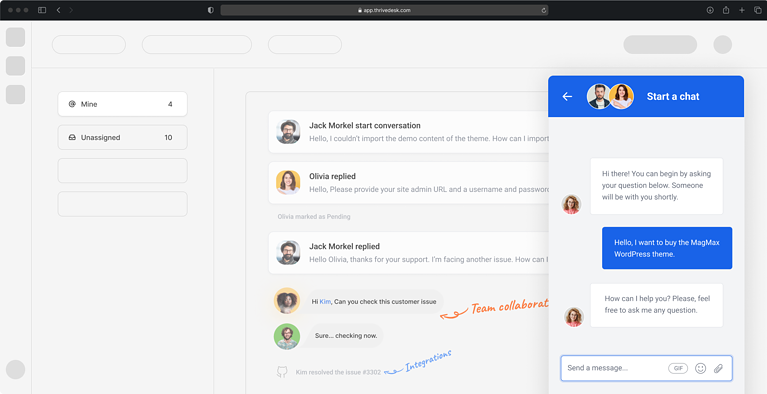“Do unto others as you would have them do unto you”
It’s a simple yet powerful message, relevant in many aspects of life, none more so than in business and customer service. To provide exemplary customer service, you must give what you expect. Learn this message by heart and let it guide all your customer service interactions.
It may sound simpler than it actually is, and this is the exact reason you need to get through this guide because we will walk you through customer service best practices that you can ensure that your customers feel heard, respected, and genuinely cared for.
From streamlining communication to leveraging cutting-edge technology, you’ll discover a wealth of strategies to take your customer service to new heights and leave an indelible impression on those you serve.
Let’s get right into it!
9 Customer Service Best Practices for Delivering Exceptional Customer Service
1. Prompt and Responsive Communication
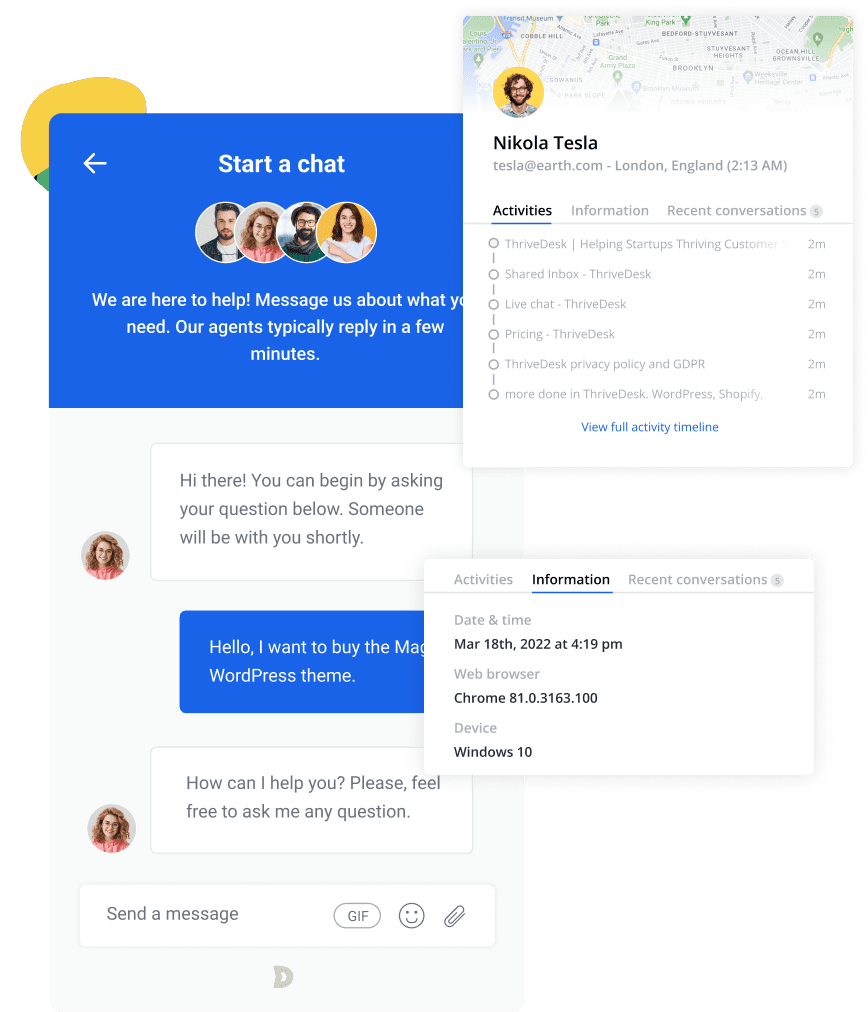
Effective and timely communication is the key to providing exceptional customer service! In today’s fast-paced world, customers expect quick responses to their inquiries and concerns. Businesses that consistently meet and exceed these expectations will foster customer loyalty and boost their brand reputation.
To ensure prompt communication, it’s important to establish clear service-level agreements (SLAs) for response times. This will empower our customer service team to prioritize and quickly address incoming requests. We can also leverage automation and intelligent routing to minimize wait times and direct customers to the appropriate channels.
Regular updates on the status of requests are crucial to keeping customers informed throughout the resolution process. By implementing proactive communication touchpoints and encouraging an open dialogue with our customers, we can demonstrate our commitment to meeting their needs.
We also need to ensure that our customers can reach us at any time. Whether it’s providing 24/7 support or clearly communicating our business hours and available self-service options, we want to make it easy for customers to get in touch with us.
By mastering the art of prompt and responsive communication, we’ll show our customers that their needs are our top priority, driving loyalty, positive word-of-mouth, and ultimately, business growth!
2. Empathetic and Personalized Approach
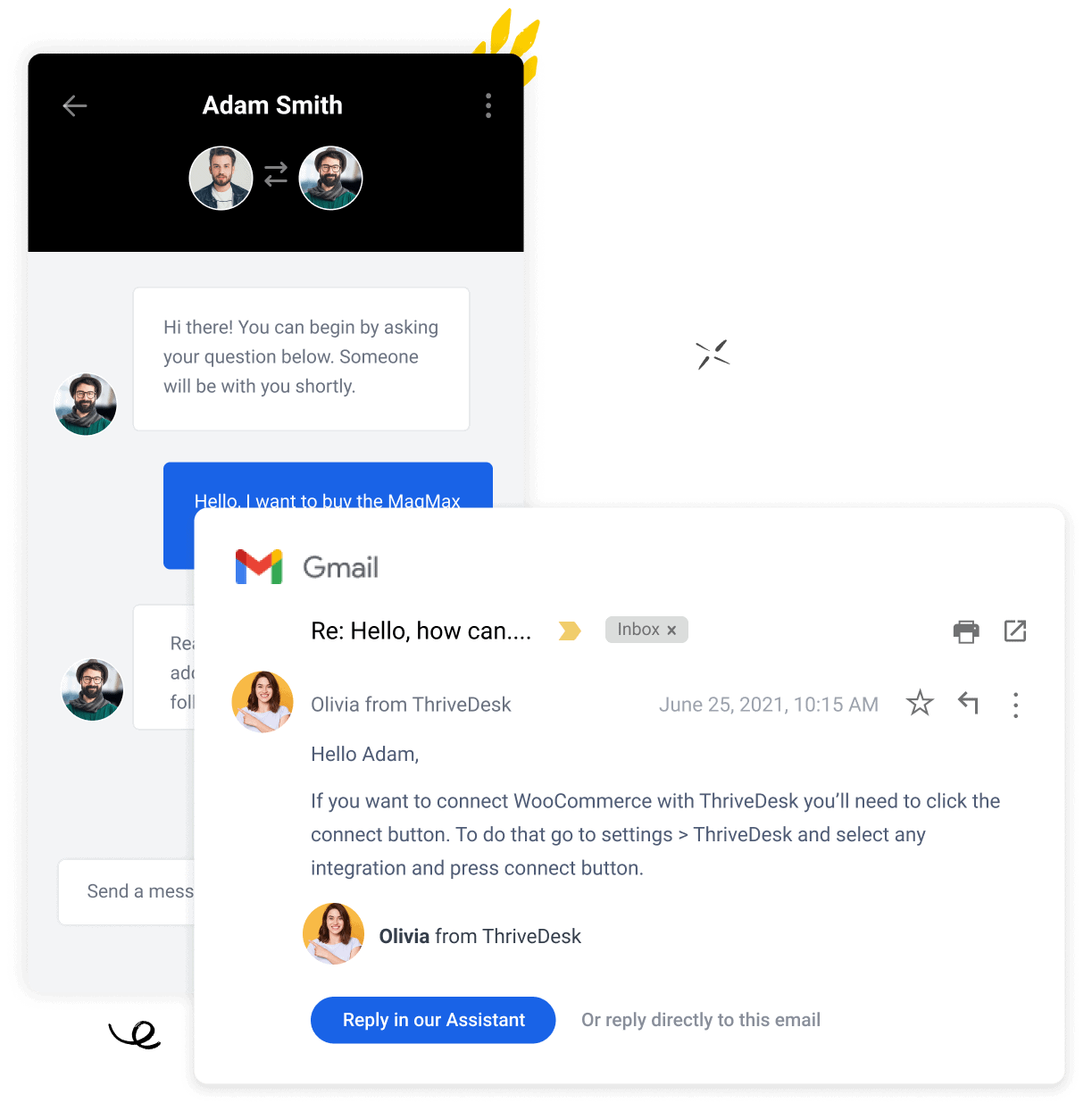
A one-size-fits-all strategy doesn’t work for un service à la clientèle exceptionnel. Today’s customers expect personalized experiences that cater to their unique needs and preferences. By adopting an empathetic and personalized approach, businesses can build lasting connections with their clients and stand out from the competition.
Active Listening
Active listening is crucial. Customer service representatives should truly understand the customer’s concerns, goals, and pain points. This involves asking thoughtful questions, paraphrasing to ensure understanding, and showing genuine interest in the customer’s perspective. When customers feel heard, they are more likely to trust the solutions offered by the business.
Tailoring Solutions
Use the insights from active listening to tailor solutions to each customer’s preferences. Suggest products or services that align with their specific needs or propose alternatives that better fit their circumstances. By showing a deep understanding of the customer’s context, you build trust and loyalty that generic approaches can’t match.
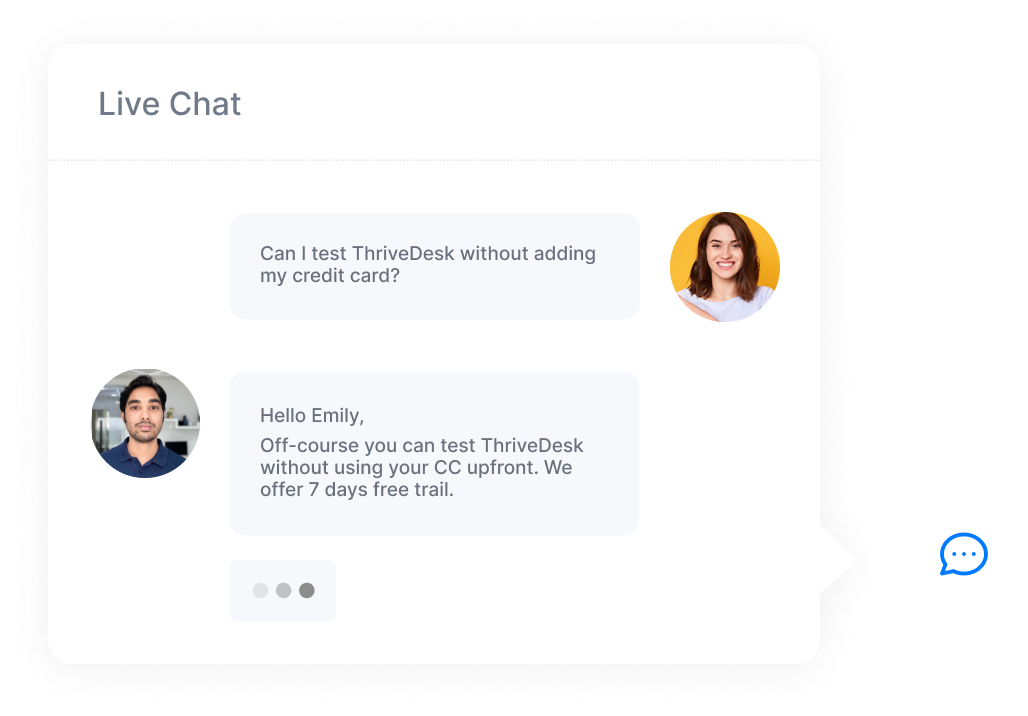
Best Customer Service
Looking to elevate your customer service game? ThriveDesk is your ultimate solution! With its intuitive features and seamless interface, it streamlines customer interactions and boosts satisfaction. Try ThriveDesk today!
Demonstrating Genuine Care
Show genuine care for the customer’s experience. Approach each interaction with empathy, patience, and a real desire to help. Simple gestures like acknowledging the customer’s feelings, expressing gratitude, or offering a personalized follow-up can create a positive emotional connection.
When customers feel valued beyond just being a transaction, they are more likely to stay loyal, advocate for the brand, and contribute to long-term growth. Embedding an empathetic and personalized approach into your customer service strategy provides a powerful competitive advantage that sets your business apart.
3. Extensive Product/Service Knowledge
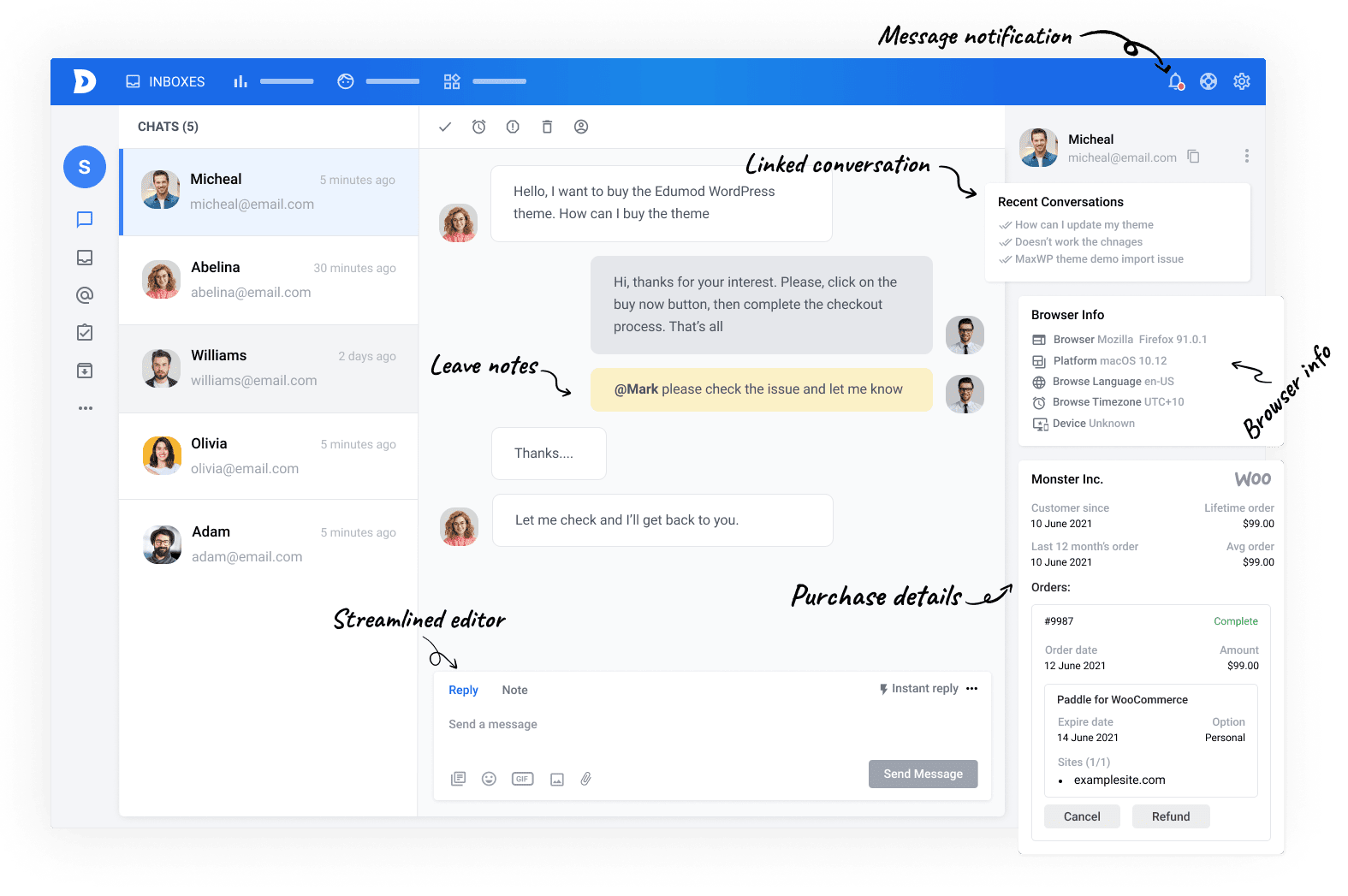
In customer service, knowledge is power. Customers expect representatives to be well-versed in the products and services offered, providing accurate and helpful information to meet their needs. Mastering extensive product and service knowledge is essential for exceptional customer service.
Start with thorough training for customer service representatives. Invest in comprehensive onboarding programs that cover the features, benefits, and unique selling points of your offerings. Equip your team to handle a wide range of inquiries, from technical specs to troubleshooting.
Learning shouldn’t stop after onboarding. Foster a culture of continuous learning and development. Keep your representatives updated on the latest product updates, new services, and industry trends. Regular training sessions, access to online resources, and engagement with subject matter experts are crucial.
When customers interact with knowledgeable representatives, they feel confident their needs will be met, strengthening their trust in your business. Providing accurate and helpful information builds credibility, resolves issues efficiently, and enhances the customer experience.
Investing in your team’s product and service knowledge empowers them to become true brand ambassadors. They’ll handle even the most complex queries with ease and professionalism. This leads to higher customer satisfaction, increased loyalty, and a stronger competitive position in the market.
4. Efficient Problem-Solving

Problems are inevitable in customer service, but how a business responds makes all the difference. Efficient problem-solving builds trust and confidence in the brand.
Create clear, simple workflows for resolving issues. Use decision trees, bases de connaissances, and automation to speed up the process.
Allow customer service reps to make decisions and offer solutions. This reduces response times and improves the customer experience.
Analyze feedback and support trends to identify and fix recurring issues. This will help prevent problems and free up your team for complex cases.
Efficient problem-solving shows customers that your business is responsive and reliable, fostering loyalty and positive word-of-mouth.
5. Omnichannel Support

In the digital age, customers expect to reach businesses via phone, email, social media, and live chat. Adopting an omnichannel approach enhances their experience and boosts loyalty.
Intégration transparente of communication channels is key. Provide consistent, high-quality service across all platforms. Whether through phone, email, or chat, aim for a unified and personalized experience. At ThriveDesk, we do this with shared inboxes, live chat, and integrations like WooCommerce and Surecart.
Invest in the right technology. Use cloud-based contact centers, CRM platforms, and analytics tools to capture and analyze customer data. This unified system gives a complete view of the customer’s history and preferences, enabling personalized service.
Foster a customer-centric culture. Train representatives to handle various communication channels with consistency and expertise. Ensure your brand voice and messaging are cohesive across all platforms.
Embracing omnichannel customer service meets clients where they are and provides exceptional support. This approach improves the customer experience and fosters loyalty, advocacy, and growth.
6. Proactive Customer Outreach

Being reactive isn’t enough in customer service. Businesses must adopt a proactive approach, anticipating customers’ needs and offering solutions before issues arise. This strategy transforms the customer experience, builds deeper relationships, and drives lasting success.
Understand your customers’ needs, preferences, and pain points. Monitor data, analyze feedback, and use predictive analytics to anticipate support needs. Reach out proactively with product updates, maintenance reminders, or personalized recommendations based on past interactions.
Monitor customer feedback closely and address emerging concerns before they escalate. Regular check-ins and prompt responses show commitment to the customer experience and prevent small problems from becoming larger issues.
Implement automated triggers and workflows for personalized communication at key touchpoints. Use automated check-ins after purchases, follow-ups on support requests, and timely notifications about product updates. This ensures no customer falls through the cracks and every interaction is tailored to their needs.
Embracing proactive customer outreach resolves issues more efficiently and builds stronger, trusting relationships. This leads to increased loyalty, positive word-of-mouth, and a competitive advantage.
7. Gamification and Incentives

Traditional approaches to customer service may fall short in engaging today’s consumers. That’s where gamification and incentives come in. By adding game-like elements and rewards, businesses can create dynamic, interactive experiences for their clients.
Incorporating gamification can take various forms. Award points or badges for specific actions like providing feedback or referrals. Develop interactive surveys or quizzes where customers earn rewards for participation. These experiences make interactions enjoyable and provide valuable data for service improvements.
Offer tangible rewards and incentives to engage customers further. Implement loyalty programs with exclusive perks or discounts. Surprise customers with gift cards or personalized thank-you notes. Recognizing loyalty fosters a sense of belonging beyond transactions.
Creating an emotional connection with customers is key. When they feel valued, they become more invested in the brand. This boosts satisfaction, retention, and referrals.
Embracing gamification and incentives sets businesses apart in a crowded marketplace. It appeals to modern consumers and drives long-term loyalty and growth.
8. Artificial Intelligence (AI) Integration

In the ever-changing world of customer service, businesses must embrace Artificial Intelligence (AI) to stay ahead. AI integration dramatically improves efficiency, personalization, and scalability, enhancing the overall customer experience.
AI-powered chatbots, Live chat, and virtual assistants provide 24/7 support, handling inquiries with lightning-fast response times. By automating common issues, human representatives can focus on more complex problems and improve efficiency and responsiveness. ThriveDesk allows access to AI integrations directly at the reply editor.
You can adjust your tone, fix spelling and grammatical errors, expand or shorten your reply, translate replies into other languages, or even use a custom gpt prompt to query generic information directly from the reply editor.
AI analytics offer deeper insights into customer behavior and preferences. By analyzing data, AI identifies patterns, predicts needs, and personalizes the customer experience. This includes tailoring recommendations and proactively addressing potential issues.
Machine learning algorithms enhance proactive and predictive support. By analyzing interactions and feedback, AI identifies recurring problems and develops automated solutions, improving efficiency.
As businesses adapt to the digital landscape, AI integration is crucial for exceptional customer service. Embracing AI enhances responsiveness, personalization, and problem-solving, positioning businesses as industry leaders.
9. Employee Empowerment and Development

Exceptional customer service hinges on a well-trained, engaged, and empowered workforce. Investing in continuous development and support not only improves customer interactions but also cultivates a culture of innovation and excellence.
Comprehensive Training: Robust onboarding programs immerse new hires in company values and service standards. Ongoing learning keeps representatives updated on industry trends and best practices.
Empowerment: Create an environment that encourages autonomy and problem-solving. Grant frontline staff the authority to make decisions and go the extra mile for customers. Empowered teams become brand ambassadors, delivering personalized support.
Continuous Feedback: Establish clear communication channels for representatives to share insights and collaborate on improvements. This fosters a sense of ownership and investment in the team’s success.
Recognition and Rewards: Recognize exceptional performance through formal programs, incentives, or genuine praise. Celebrating successes inspires representatives to deliver outstanding service.
When representatives feel empowered and valued, they bring their best selves to every interaction. This results in personalized, efficient, and memorable service that sets businesses apart.
Réflexions finales
Exceptional customer experience is essential. This guide highlights crucial strategies such as prompt communication, empathetic problem-solving, and gamified engagement. Adopting these customer service best practices will help businesses meet evolving consumer expectations and stand out as leaders in customer experience.
Remember, there’s no one-size-fits-all solution. Each organization must tailor these strategies to its unique needs and goals. Achieving customer service excellence is an ongoing journey that requires agility, innovation, and a steadfast focus on the customer.
As you enhance your customer service operations, stay curious, embrace change, and always prioritize the customer’s voice. The rewards – loyal customers, increased revenue, and a stellar reputation – will be well worth the effort.




